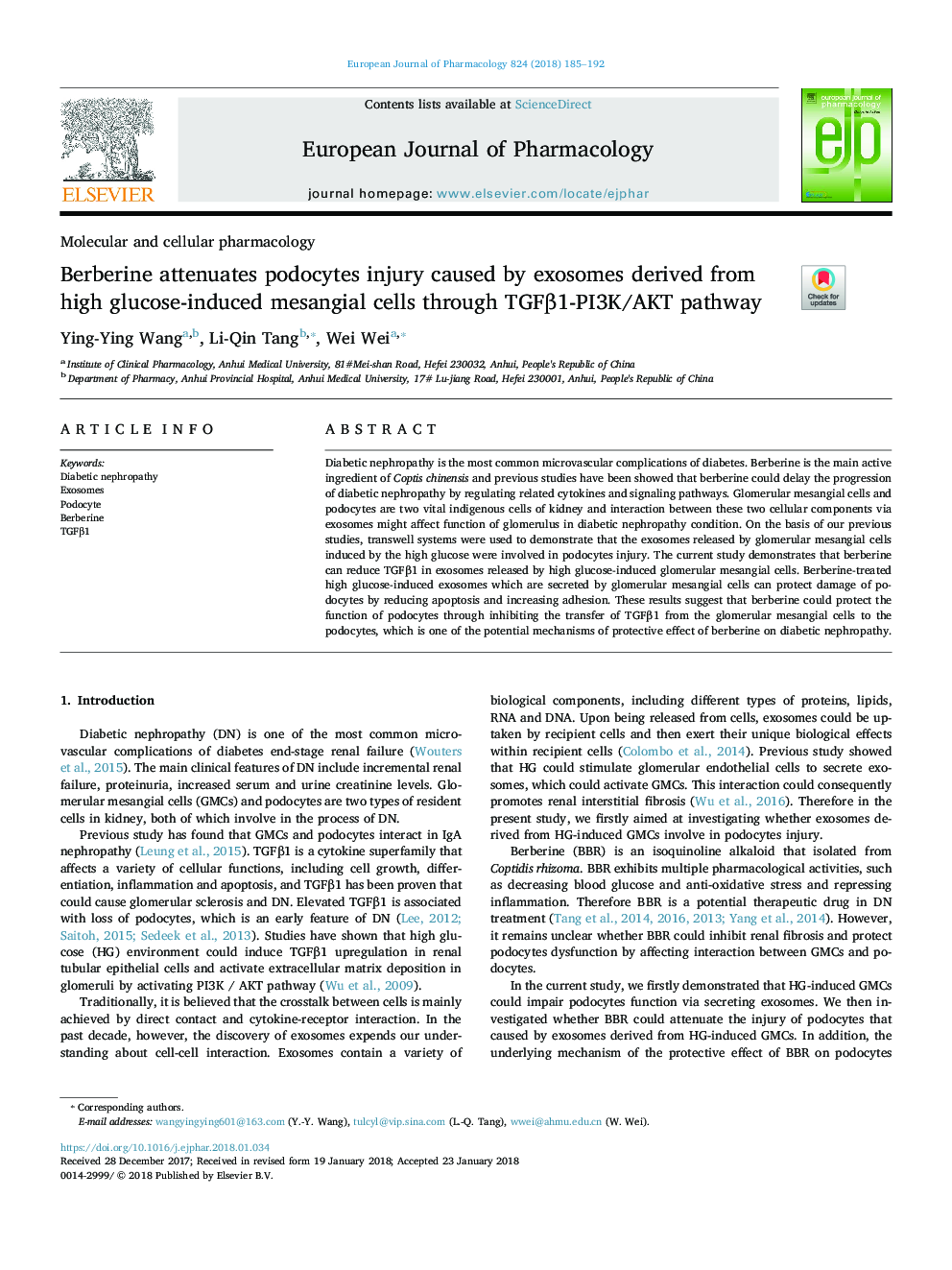| کد مقاله | کد نشریه | سال انتشار | مقاله انگلیسی | نسخه تمام متن |
|---|---|---|---|---|
| 8529275 | 1558856 | 2018 | 8 صفحه PDF | دانلود رایگان |
عنوان انگلیسی مقاله ISI
Berberine attenuates podocytes injury caused by exosomes derived from high glucose-induced mesangial cells through TGFβ1-PI3K/AKT pathway
دانلود مقاله + سفارش ترجمه
دانلود مقاله ISI انگلیسی
رایگان برای ایرانیان
کلمات کلیدی
موضوعات مرتبط
علوم زیستی و بیوفناوری
علم عصب شناسی
علوم اعصاب سلولی و مولکولی
پیش نمایش صفحه اول مقاله

چکیده انگلیسی
Diabetic nephropathy is the most common microvascular complications of diabetes. Berberine is the main active ingredient of Coptis chinensis and previous studies have been showed that berberine could delay the progression of diabetic nephropathy by regulating related cytokines and signaling pathways. Glomerular mesangial cells and podocytes are two vital indigenous cells of kidney and interaction between these two cellular components via exosomes might affect function of glomerulus in diabetic nephropathy condition. On the basis of our previous studies, transwell systems were used to demonstrate that the exosomes released by glomerular mesangial cells induced by the high glucose were involved in podocytes injury. The current study demonstrates that berberine can reduce TGFβ1 in exosomes released by high glucose-induced glomerular mesangial cells. Berberine-treated high glucose-induced exosomes which are secreted by glomerular mesangial cells can protect damage of podocytes by reducing apoptosis and increasing adhesion. These results suggest that berberine could protect the function of podocytes through inhibiting the transfer of TGFβ1 from the glomerular mesangial cells to the podocytes, which is one of the potential mechanisms of protective effect of berberine on diabetic nephropathy.
ناشر
Database: Elsevier - ScienceDirect (ساینس دایرکت)
Journal: European Journal of Pharmacology - Volume 824, 5 April 2018, Pages 185-192
Journal: European Journal of Pharmacology - Volume 824, 5 April 2018, Pages 185-192
نویسندگان
Ying-Ying Wang, Li-Qin Tang, Wei Wei,